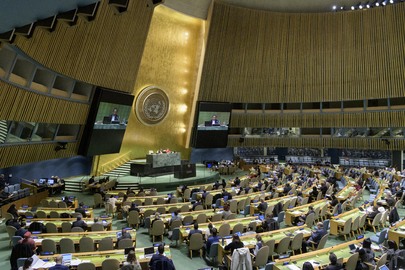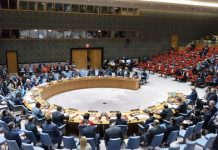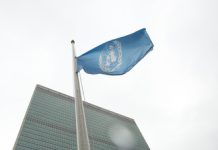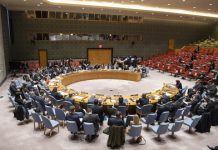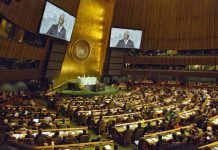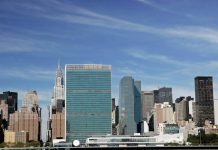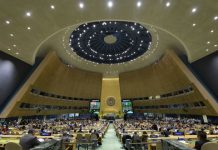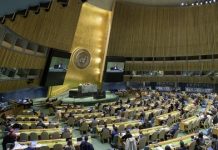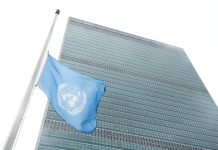Iran-Israel crisis: IAEA chief urges access to damaged nuclear sites
The head of the UN-backed nuclear watchdog has repeated his appeal for immediate access to Iran’s nuclear sites that were targeted in surprise attacks by the United States at the weekend.
Rafael Grossi, head of the International Atomic Energy Agency (IAEA), said on Monday that damage is likely to have been “very significant”.
His comments came amid fresh reports of further missile strikes in Iran and Israel, 11 days since Tel Aviv launched attacks against Tehran.
Mr. Grossi said that it was most important to return to Iran’s nuclear sites and account for their stockpiles.
Here he is now:
“Craters are now visible at the Fordow site, Iran’s main location for enriching uranium at 60 per cent, indicating the use of ground-penetrating munitions. This is consistent with statements from the United States. At this time, no one including the IAEA, is in a position to have fully assessed the underground damage at Fordow.”
There is particular concern about what is estimated to be 400 kilogrammes of uranium enriched to 60 per cent by Iran – which experts say is close to the purity needed to make a nuclear weapon.
Under the terms of a 2015 nuclear deal with the international community, Iran is permitted to enrich the naturally occurring radioactive material to less than four per cent.
Mr. Grossi said that taking into account the highly explosive payload used in the US attacks, “very significant damage is expected to have occurred” to the highly sensitive centrifuge machinery used to enrich uranium at Fordow.
Fordow is one of several sites across Iran linked to nuclear activity known to have been damaged in the US strikes, including those in Esfahan, Arak and Tehran.
Sudan: Risk of genocide in Sudan still very high, rights council hears
More than two years into the Sudan war, the risk of genocide is still alarmingly high, the Human Rights Council heard on Monday.
Virginia Gamba, the UN’s top official on the prevention of genocide, expressed deep concern about attacks against ethnic groups linked to the ongoing war between the Sudanese army and paramilitary Rapid Support Forces, RSF.
Ms. Gamba highlighted how the RSF and allied armed Arab militias still carry out ethnically motivated attacks against the Zaghawa, Masalit and Fur groups.
“The risk of genocide, war crimes and crimes against humanity in the Sudan remains very high, particularly in Darfur and Kordofan regions,” she told the Human Rights Council.
DR Congo crisis must not be forgotten, insists OCHA chief
The UN’s top aid official Tom Fletcher has just arrived in the Democratic Republic of the Congo to highlight the massive humanitarian emergency particularly in the east of the country.
People of the vast central African nation face “constant violence, displacement and suffering”, Mr. Fletcher said in an online post – a reference to persistent inter-communal clashes across the country and attacks on civilians by armed groups.
The situation is worst in the eastern regions of North and South Kivu because of escalating fighting in recent months between the Congolese armed forces and Rwanda-backed M23 rebels.
In a recent update, UN human rights chief, Volker Türk, reported that M23 used heavy weapons on the city of Goma in January, hitting densely populated neighbourhoods and camps for displaced people.
And as the national armed forces retreated, Mr. Türk said that there was an apparent total breakdown in command, control and military policing as DRC soldiers and members of the DRC-backed Wazalendo militias “killed, raped and pillaged”.
According to the UN aid coordination office, OCHA, 2.7 million people were already facing severe food insecurity in North Kivu, South Kivu and Ituri before the latest crisis.
Daniel Johnson, UN News.
Music composed and produced by Joachim Harris. All rights reserved
Source of original article: United Nations (news.un.org). Photo credit: UN. The content of this article does not necessarily reflect the views or opinion of Global Diaspora News (www.globaldiasporanews.com).
To submit your press release: (https://www.globaldiasporanews.com/pr).
To advertise on Global Diaspora News: (www.globaldiasporanews.com/ads).
Sign up to Global Diaspora News newsletter (https://www.globaldiasporanews.com/newsletter/) to start receiving updates and opportunities directly in your email inbox for free.


